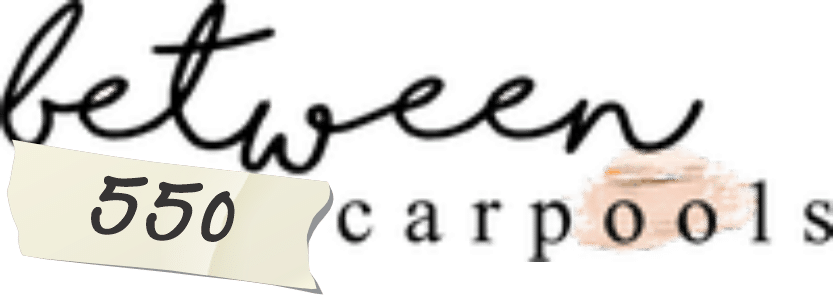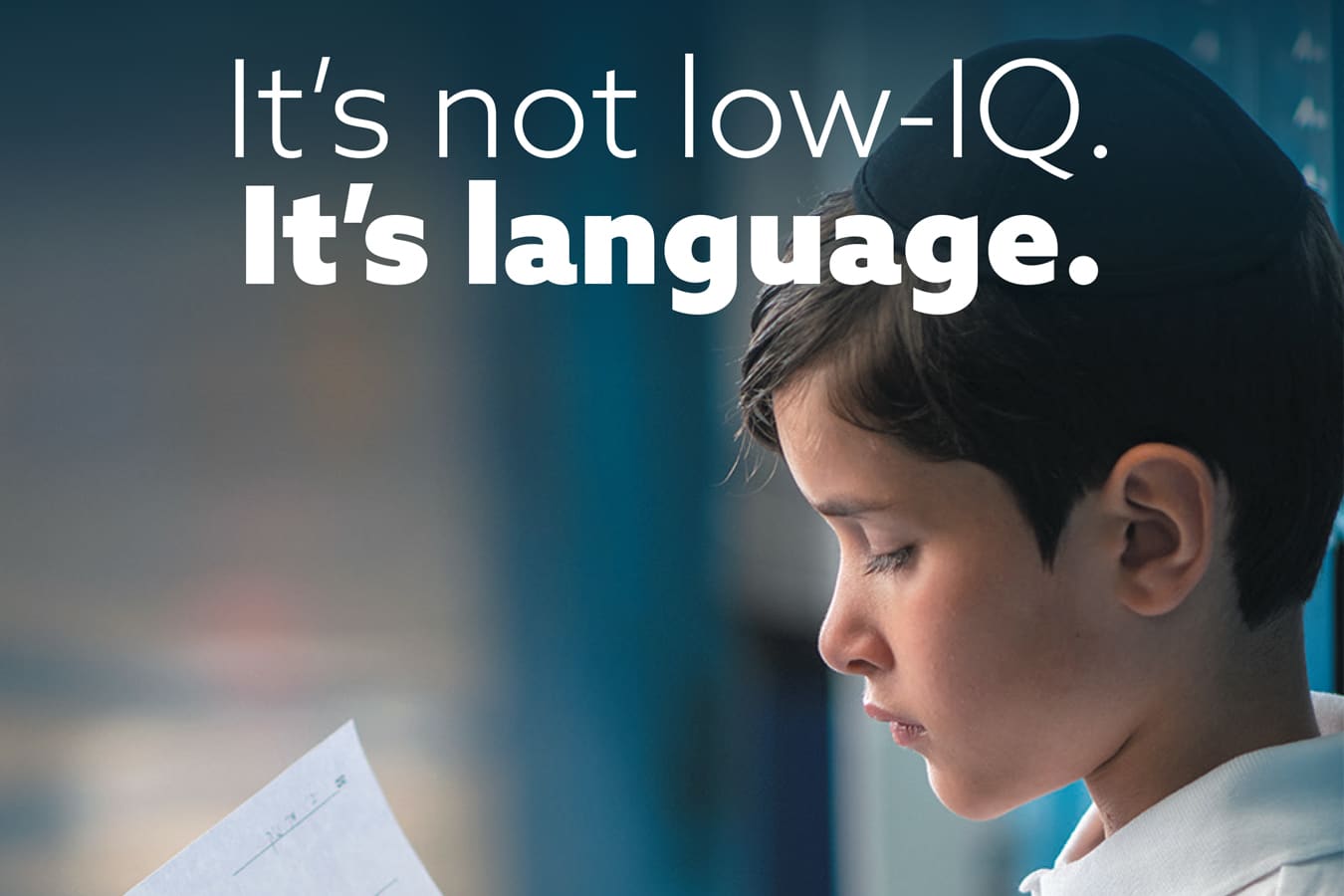Is there a missing piece with your child’s ability to learn in Lashon Hakodesh? Learn about Hani Mili and the tools they teach to help your child succeed, and visit them online at hanimili.org.
Do you have a child who struggles to learn inside? Or a child having a harder time in Hebrew subjects than you’d expect? If this rings a bell, you’ll understand the frustration, the desperation, and the need to find a solution.
See, Hani Mili gave us a sneak peek into how it usually works. By the end of primary, or Pre-1A, a typical student is expected to have mastered Kriah: to read accurately and with age-appropriate fluency. In first grade, he begins picking up the common words from the Chumash that he’s learning (think high-frequency shorashim), and keeps on adding new words to his word bank.
Within a few months of working on text-based learning, his word bank of words that he can read and translate grows…and grows and grows. As he progresses in his learning, he starts picking up additional skills, like adding prefixes and suffixes and segmenting words. He develops grammar skills, like recognizing past, present and future tenses, masculine and feminine, singular and plural, etc. Next, he starts learning syntax rules, like putting two words together to be able to translate simple phrases.
This process of language acquisition repeats itself easily and successfully in third grade with mishnayos and fifth grade with Gemara. Once he has those basics, he’s on his way to being an independent, text-based learner.
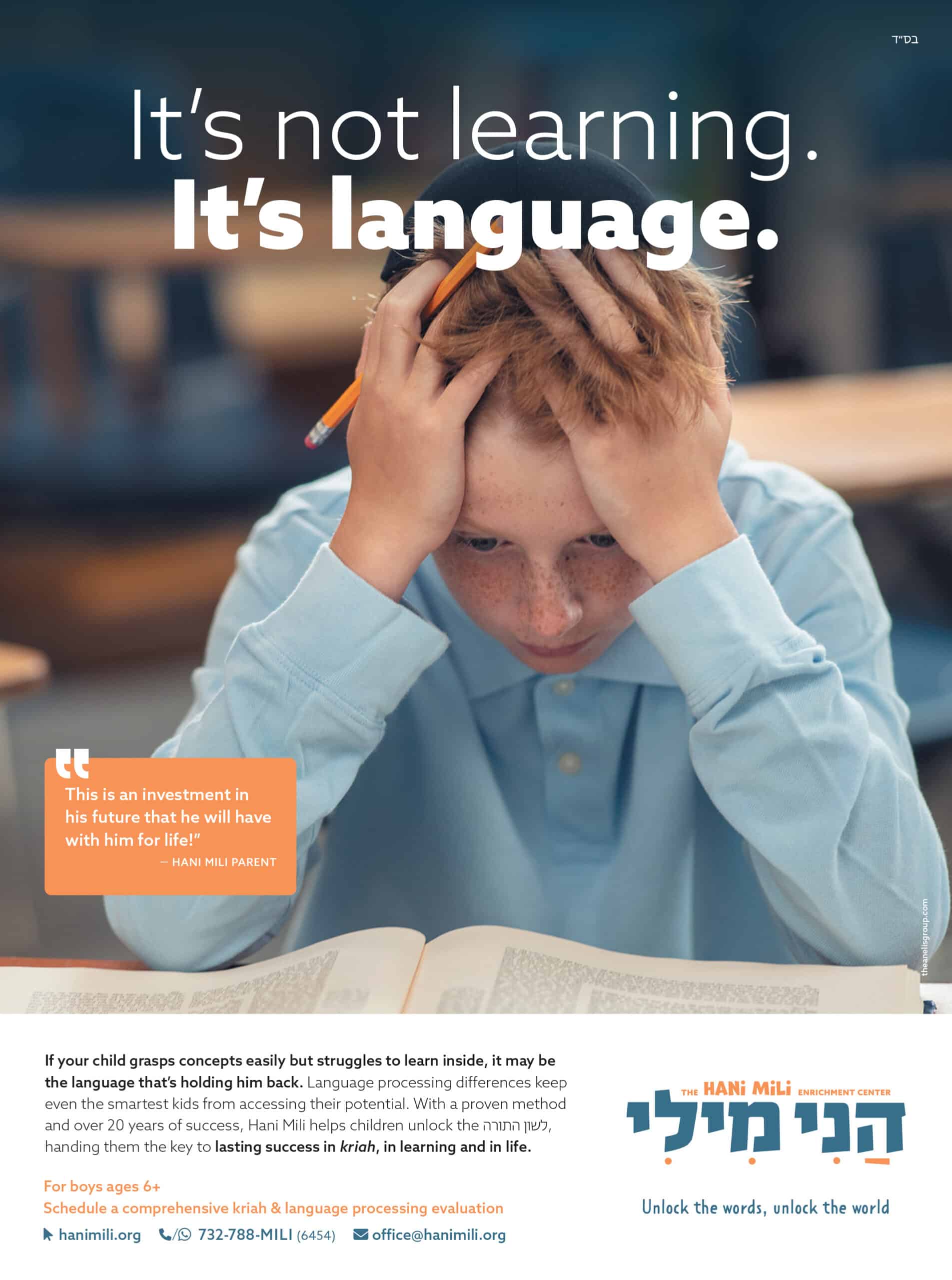
Sometimes though, a child doesn’t naturally pick up those foundational skills. Before you know it, learning becomes harder and harder. The child has to rely on memorization and has to work double-time to compensate for his struggle with reading and translating, which his peers are now doing automatically. A super-bright, happy, and overall successful child is now stuck in a negative spiral: learning weakness, negative self-perception…you name it.
So how does Hani Mili help? They go back to the basics: teaching core word mastery skills (and reading skills when necessary) to build those foundational language skills. They use specific methods and materials they’ve developed to help your child reach effortless, instant retrieval, freeing up his ‘thinking’ skills to work on comprehension. Hani Mili has over 20 years of success filling the language gap and enabling their students to learn, easily.
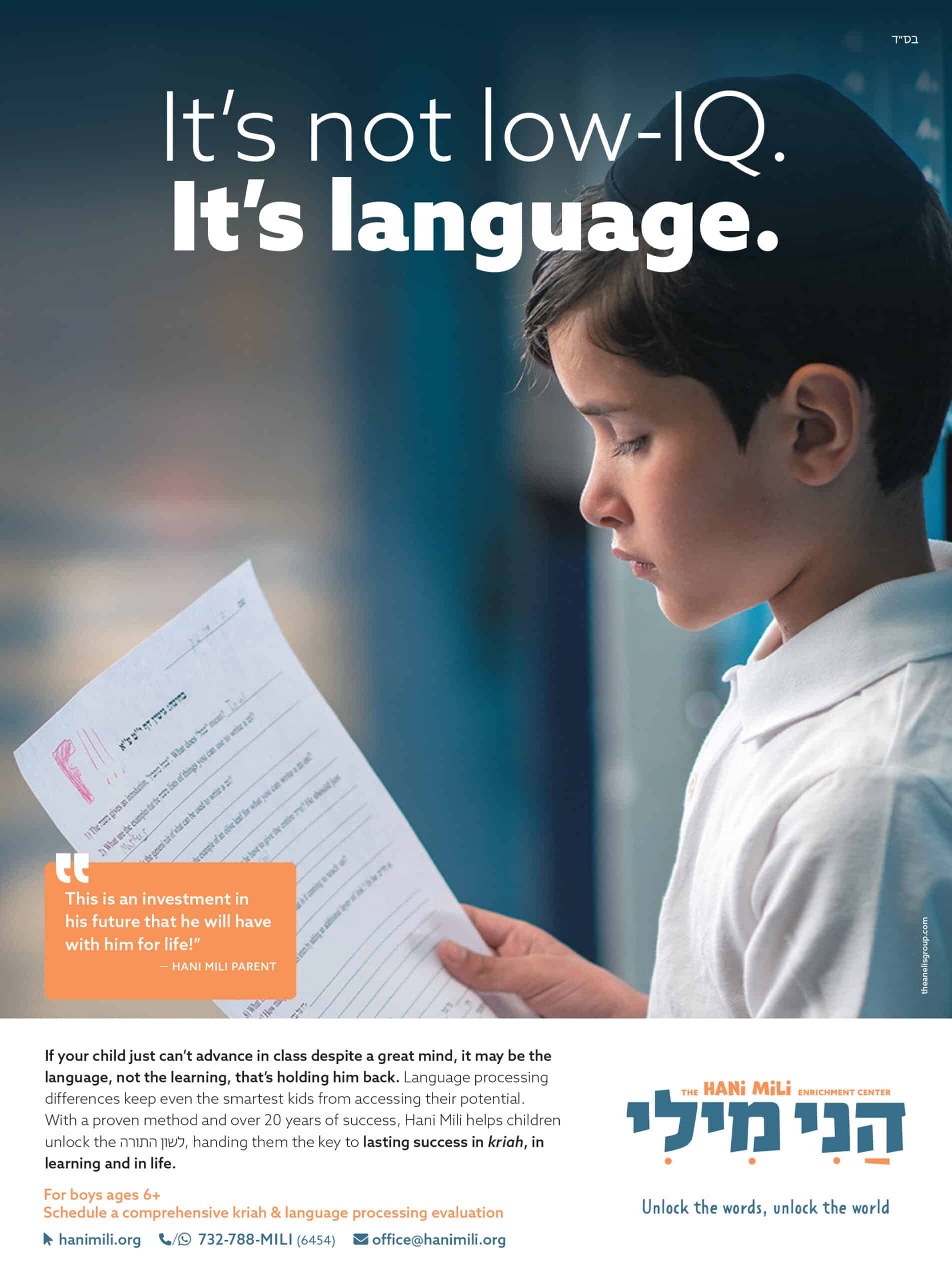
We’re always curious to speak to people who have done the program, so we caught up with Sarah, who has a few children who completed Hani Mili. ‘It took me time to realize there was a problem,’ Sarah explained. ‘It started with my daughter actually, I realized that although she was doing excellently in English subjects, in Hebrew subjects she was struggling, it was like there was something she wasn’t getting. She was getting decent marks and wasn’t making any trouble, but there was this sort of disconnect in her Hebrew subjects. I had heard of Hani Mili from my daughter’s teacher, and figured it was worth getting her evaluated to see if there was something we were missing. During the evaluation, they realized right away that she wasn’t grasping the Hebrew language. At all. It was as if she was learning in Chinese! And she was surviving by memorization and compensating. She started Hani Mili right away, and we saw improvement, right away. Once she learned how to take apart and understand Hebrew words, she finally started to experience the joy and satisfaction of learning.
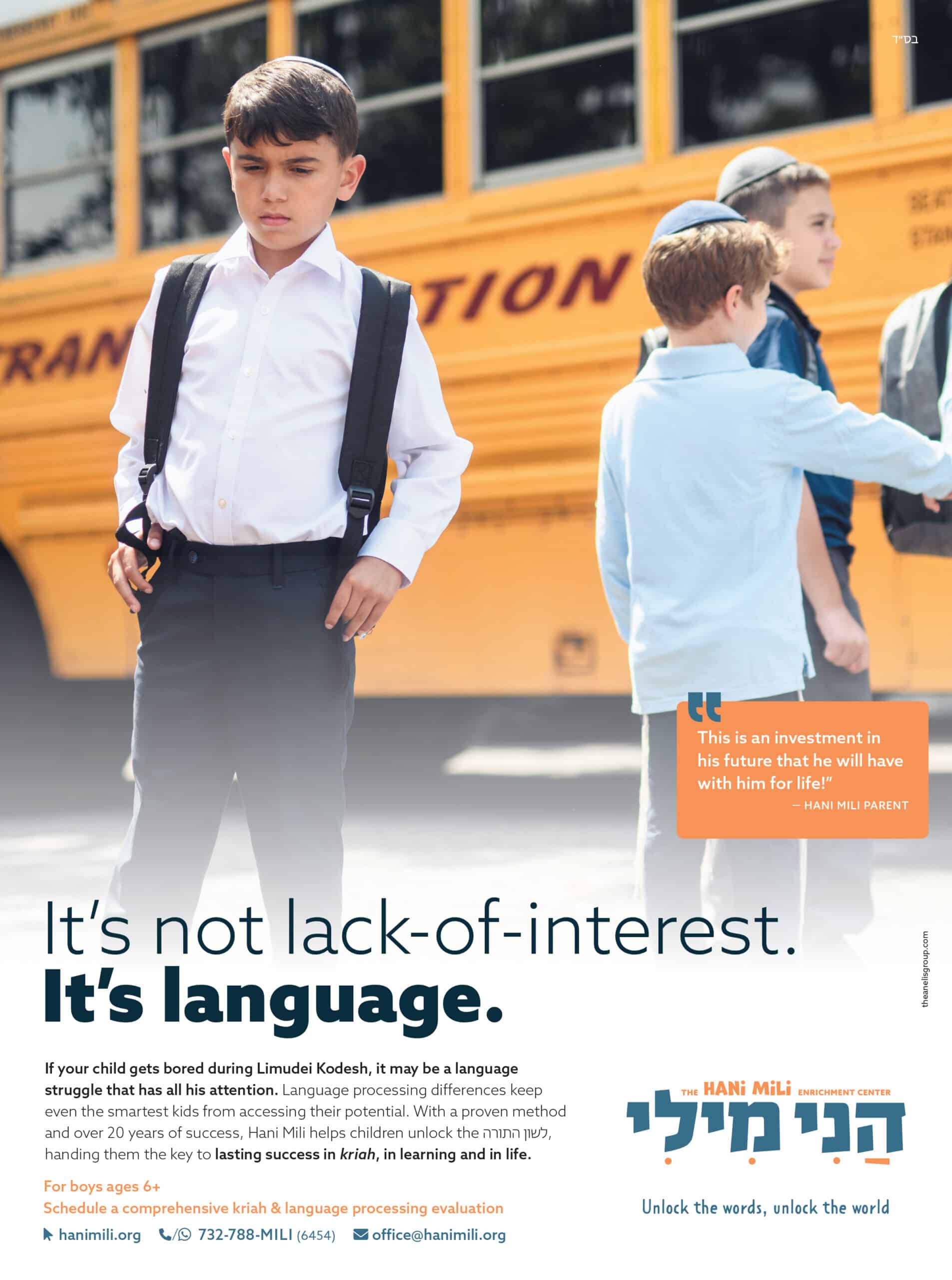
‘And so I looked at two of my boys and thought, what if it could be easier for them too? What if they’re missing that language, and that’s why they’re medium students, despite putting in that effort? And I got them evaluated, and Rabbi Kerpel immediately saw that they were missing that language piece too. For whatever reason, they just didn’t get it automatically. They had a long journey, because they were older and the gap was bigger, but they’re both finished now. And they have completely changed. Now that they have the tools to learn, they love learning. They’re equipped to take on a Gemorah, or a meforesh. They thank me for sending them!’
You know your child is bright, but for some reason learning inside is such a challenge. Language processing may be the missing piece keeping him from accessing his potential. Here’s how to find out. First, you’ll fill out an intake form and schedule an evaluation to identify your son’s learning style and challenges and see if Hani Mili is right for him. If it’s a good fit, Hani Mili will create a personalized curriculum: including goals, milestones, and timeframe. This program has a beginning and end, it’s not going to last forever. You’ll schedule sessions (in-person or zoom), and you’ll watch your son finally have hatzlacha learning from Hebrew texts, as if he were reading it in his native language. Sessions take place 4-5 times a week for the duration of the program: it’s intense, but it’s an investment for life! Find the answers to more questions here, or reach out to Hani Mili here to schedule an evaluation.

